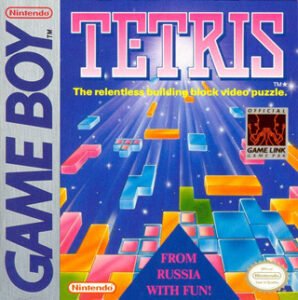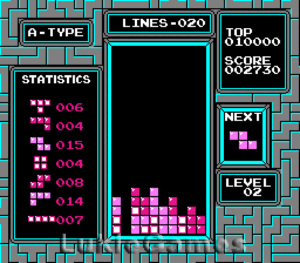 In 1984, a simple yet captivating game emerged from the depths of Soviet academia, quietly making waves that would ripple through the realms of both gaming and cognitive science. This was not just any ordinary game; this was Tetris. Conceived by Russian programmer Alexey Pajitnov, Tetris introduced an entirely new genre of puzzle-solving gameplay that quickly transcended cultural and geographical barriers. But the true genius of Tetris lies beyond its addictive mechanics and iconic tetrominoes; it holds a unique place in the pantheon of video games for its remarkable impact on cognitive skills and neurological studies. As the digital blocks cascaded down our screens, aligning perfectly to clear rows and ascend levels, Tetris also began aligning neurons and clearing pathways in our brains, offering unparalleled mental challenges.
In 1984, a simple yet captivating game emerged from the depths of Soviet academia, quietly making waves that would ripple through the realms of both gaming and cognitive science. This was not just any ordinary game; this was Tetris. Conceived by Russian programmer Alexey Pajitnov, Tetris introduced an entirely new genre of puzzle-solving gameplay that quickly transcended cultural and geographical barriers. But the true genius of Tetris lies beyond its addictive mechanics and iconic tetrominoes; it holds a unique place in the pantheon of video games for its remarkable impact on cognitive skills and neurological studies. As the digital blocks cascaded down our screens, aligning perfectly to clear rows and ascend levels, Tetris also began aligning neurons and clearing pathways in our brains, offering unparalleled mental challenges.
The game’s influence stretches far beyond the confines of our screens, fundamentally altering our understanding of how interactive experiences can sharpen the mind. From improving spatial awareness and strategic planning to enhancing mental rotation abilities, Tetris has become a cornerstone in both the gaming world and scientific research. Join us as we delve into the extraordinary journey of Tetris, exploring how it revolutionized not only the gaming industry but also opened new frontiers in cognitive and psychological studies. As we dive deeper into the enduring legacy of Tetris in gaming and cognitive science, it becomes evident that this iconic game has left an indelible mark on both fields. Its simple yet profound gameplay mechanics continue to captivate players and researchers alike, shaping how we perceive gaming and the potential of cognitive enhancement through interactive experiences.
The Birth of Tetris: From Soviet Academia to Global Phenomenon
 Tetris, the iconic puzzle video game, traces its origins back to Soviet academia in the 1980s. Created by Russian game designer Alexey Pajitnov, Tetris quickly gained popularity among computer users before making its way to the global stage, where it became a phenomenon that revolutionized gaming and cognitive skills. Pajitnov, a computer scientist working at the Soviet Academy of Sciences, developed Tetris in 1984. The game’s simple yet addictive gameplay captured the attention of players across the Soviet Union, showcasing Pajitnov’s innovative approach to game design.
Tetris, the iconic puzzle video game, traces its origins back to Soviet academia in the 1980s. Created by Russian game designer Alexey Pajitnov, Tetris quickly gained popularity among computer users before making its way to the global stage, where it became a phenomenon that revolutionized gaming and cognitive skills. Pajitnov, a computer scientist working at the Soviet Academy of Sciences, developed Tetris in 1984. The game’s simple yet addictive gameplay captured the attention of players across the Soviet Union, showcasing Pajitnov’s innovative approach to game design.
One of the key factors behind Tetris’s success was its accessibility. The game’s easy-to-learn mechanics and challenging gameplay appealed to both casual gamers and seasoned players, making it a hit among a wide audience. As Tetris started spreading beyond Soviet borders, it caught the eye of game designer Henk Rogers, who secured the rights to distribute the game on gaming consoles. This move proved pivotal in Tetris’s journey to becoming a global phenomenon.
The game’s ability to enhance cognitive skills such as spatial awareness, critical thinking, and problem-solving skills contributed to its widespread adoption in educational and clinical settings. Tetris was no longer just a form of entertainment but also a tool for cognitive development. Tetris’s influence extended beyond the realm of gaming, inspiring a wave of puzzle games and shaping the way developers approached game design. Its legacy continues to endure, with modern iterations and adaptations keeping the spirit of Tetris alive in the ever-evolving world of gaming.
 From its humble beginnings in Soviet academia to its status as a global phenomenon, Tetris stands as a testament to the power of innovative game design and its ability to transcend cultural boundaries.Tetris, a classic tile-matching puzzle video game, has not only revolutionized the gaming industry but also significantly enhanced cognitive skills. The impact of Tetris on spatial awareness is profound and well-documented. This simple yet addictive game has been shown to improve various cognitive functions, making it much more than just a form of entertainment.
From its humble beginnings in Soviet academia to its status as a global phenomenon, Tetris stands as a testament to the power of innovative game design and its ability to transcend cultural boundaries.Tetris, a classic tile-matching puzzle video game, has not only revolutionized the gaming industry but also significantly enhanced cognitive skills. The impact of Tetris on spatial awareness is profound and well-documented. This simple yet addictive game has been shown to improve various cognitive functions, making it much more than just a form of entertainment.
Tetris’ Enduring Legacy in Gaming and Cognitive Science
Playing Tetris regularly can have a positive impact on cognitive skills such as spatial reasoning, pattern recognition, problem-solving, and concentration. The game’s mechanics require players to manipulate different-shaped blocks to fit them together efficiently, challenging their spatial awareness and mental rotation abilities.
Research studies have demonstrated that playing Tetris can lead to improvements in brain efficiency and structure. Regular engagement with the game has been associated with increased cortical thickness in various brain regions, particularly those related to critical thinking and problem-solving skills.
Furthermore, the fast-paced nature of Tetris forces players to think quickly and make split-second decisions, thereby enhancing their reaction times and cognitive flexibility. This not only improves their gaming performance but also translates into real-life situations where quick thinking is crucial.
Moreover, Tetris has been found to have therapeutic benefits for individuals with certain cognitive impairments. The game’s repetitive nature and focus on visual-spatial skills make it a valuable tool in cognitive rehabilitation therapy, particularly for patients recovering from brain injuries or neurological conditions.
The Tetris Effect:
The term “Tetris Effect” was coined to describe the phenomenon where players continue to see falling Tetris blocks in their mind’s eye even after they have stopped playing. This effect highlights the game’s ability to leave a lasting impression on the player’s subconscious mind, blurring the lines between virtual and reality.
 Tetris remains a timeless classic in the world of gaming, transcending generations with its simple yet addictive gameplay. Its enduring legacy is not only confined to the realm of entertainment but has also made a significant impact on cognitive science.
Tetris remains a timeless classic in the world of gaming, transcending generations with its simple yet addictive gameplay. Its enduring legacy is not only confined to the realm of entertainment but has also made a significant impact on cognitive science.
In the realm of gaming, Tetris revolutionized the industry with its innovative concept of fitting falling blocks into a grid. The game’s intuitive mechanics and challenging gameplay have captivated players worldwide for decades. The focus keyword “Tetris” is synonymous with the idea of strategic thinking and quick decision-making, essential skills that players must hone to succeed in the game.



















